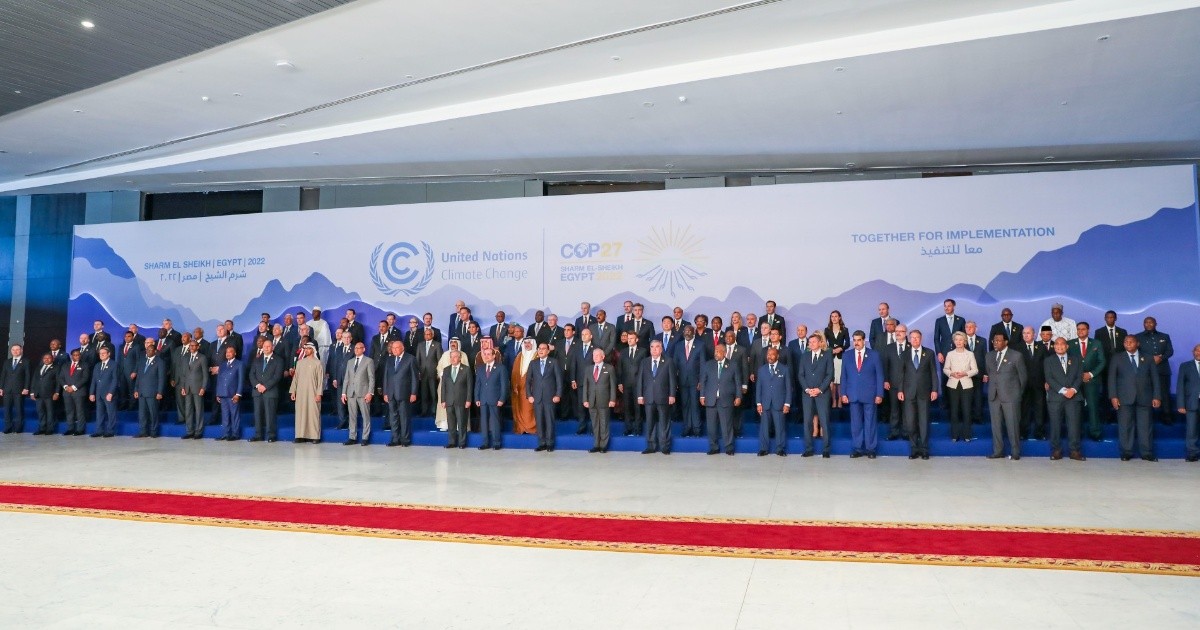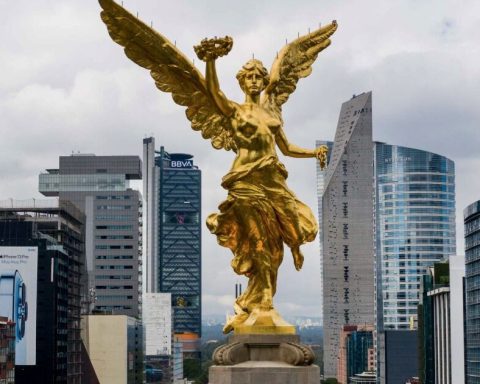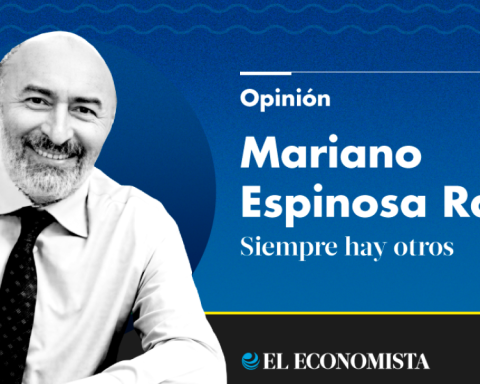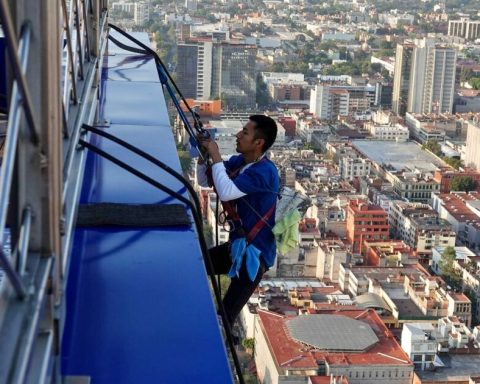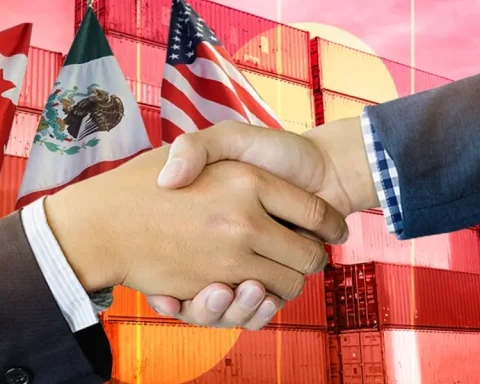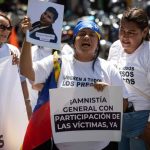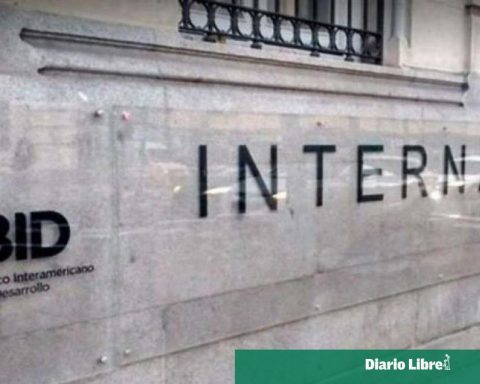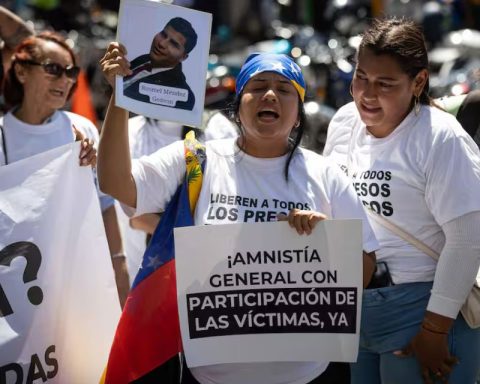Before the last United Nations climate summit (COP27) there was a fairly widespread feeling that it would be a transition conference between two key dates of the Paris Agreement: the COP in 2020 (delayed to 2021 due to the pandemic) and 2025, when commitments must be rendered accountable agreed.
The fact that will be held in an African country It also invited us to think that in this COP the financial component would arise with greater pressure, a vital issue for less developed countries. And, indeed, that is how it seems to have been.
Like in last year in Glasgowthe three star issues of the COP27 in Sharm el-Sheikh have been the mitigation of the causes of global warming, financing for actions to adapt to future climate and contributions to cover the damages attributed to current climate change in the weakest countries and vulnerable.
In this COP27 the intensity of the debate dedicated to each one of them has varied. The greatest conflict for the agreement has been in the first, due to the insufficient cut in greenhouse gas emissions by certain countries, and in the last of these three issues.
Already at the Glasgow COP there was a principle of agreement that raised as a matter of justice providing financial aid to developing countries to face the costs of damages and losses associated with the adverse effects of climate change that they have not caused, including extreme events (heat waves, hurricanes or droughts) and those that occur more slowly (rise in sea level or melting of glaciers) and taking into account not only the compensation for losses but also the costs of the recovery, rehabilitation and reconstruction.
compensations? Vulnerable countries?
At this COP, a certain consensus was soon reached that this financing should be agile and immediate. For this, it has been proposed to establish a finalist fund with contributions from developed countries and international development banks. But immediately strong controversies arose, both among potential donors and among potential recipients.
One of them refers to whether the contributions should be proportional to the total volume of greenhouse gases that each country has emitted since the pre-industrial era. Or if China, the main issuer in the last decades, should also contribute significantly. Or if the main countries that produce fossil fuels should be included. At this point, even the semantics proved contentious. Developed countries do not admit that this financing is classified as “reparations”, much less as “compensation”, as Article 8 of the Paris Agreement explicitly denies, as this could give rise to litigation.
Another source of conflict arose from the need to limit the developing countries to whom this new urgent aid fund would be dedicated, restricting it to those classified as “vulnerable.” To do this, it will be necessary to establish criteria that will inevitably be controversial, whatever they may be.
To facilitate the implementation of this economic fund, an Advisory Committee has been set up to prepare proposals to be examined and approved at the next two COPs.
Funding that remains scarce
As regards the issue of adaptation to climate change, the commitment reached in Glasgow to double funding by 2025 (some US$40 billion) aimed at improving the resilience of the poorest countries has been consolidated. But it has been seen the convenience of implementing transparency mechanisms both in the accounting and in the supervision of this aid, which still does not reach the amounts committed in the Paris Agreement.
Good news in this chapter has been the approval of an executive action plan endowed with 3 billion dollars between 2023 and 2027 to provide quality weather forecasts that allow early warning of extreme events in countries that do not have these services. The objective is to limit the severity of disasters associated with such events.
Is the target of 1.5 ℃ still valid?
But what has caused the most controversy, to the point of having to postpone the closure of COP27 for two days, has been reaching a consensus on the urgent need to substantially mitigate emissions by 2030 and reaching a neutral balance halfway through century.
The EU has bet very strongly that, as in the Glasgow COP26, the final resolution clearly states that the objective continues to be to ensure that warming approaches 1.5 ℃ compared to the pre-industrial era. Their fear was that mention of that commitment would be ignored as a large group of developing countries seemed to have wanted. This is because the “enhanced” commitments received so far make it impossible to achieve that goal. As the IPCC scientists point out, to achieve this, global emissions must begin to decrease by 2025 at the latest and become 40% lower by 2030 than in 2019.
This debate has become even more bitter because the issue of mitigation has crossed with financing for developing countries to deal with climate change. The developed countries threatened not to provide more financing until there was a clear commitment to reduce global emissions as they have committed. For their part, most developing countries maintain that if there is no commitment to financing, they are not willing to reduce emissions either. In this troubled river there is fishermen who win, for example China, India or the countries that produce fossil fuels.
Faced with this commotion, the COP presidency has opted to practically repeat, for this mitigation chapter, the wording of the conclusions approved at last year’s conference in Glasgow. Not even one comma has changed from the controversial agreement on the “progressive reduction (phase down) from the use of coal and the elimination of inefficient subsidies to oil and gas”. could have been deleted (phase-out) at least coal for energy production and reduce other fossil fuels.
In short, if it weren’t for the agreement on the creation of the fund to pay for the damages and losses derived from current climate change and some other minor onesit could be said that this COP has not only been disappointing but has also inflamed the confrontation between blocks, harassed by some interested actors.
Manuel de Castro Munoz de LucasProfessor of Earth Physics, Castilla-La Mancha university
This article was originally published on The Conversation. read the original.
